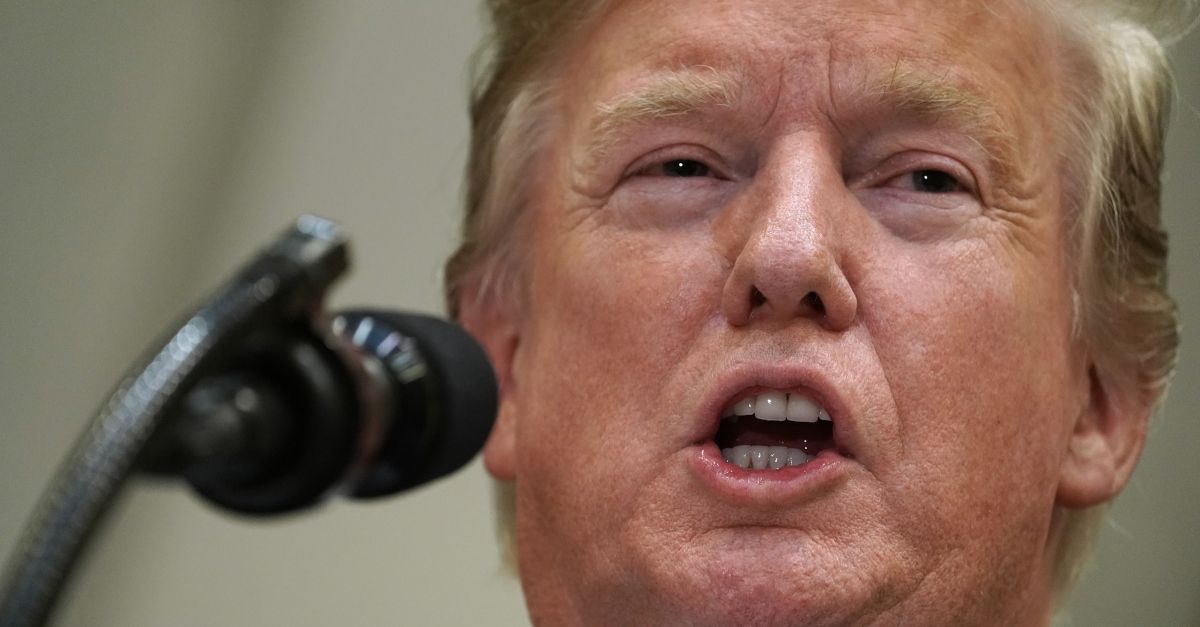
President Donald Trump’s recent tweets about the so-called “squad” led some Democrats, including Representative Al Green of Texas, to call for his impeachment. While the calls for impeachment by some on the left should come as no surprise, the question of whether President Trump may be impeached based on these allegedly “racist” tweets is an interesting one.
Pursuant to Article 2, Section 4 of the Constitution, a president can be impeached if he/she commits treason, bribery or other high crimes and misdemeanors. While the impeachment process is fairly straightforward, the House should only impeach a president if there is an impeachable offense.
Historically, only 2 presidents have ever been impeached. Andrew Johnson faced 11 articles of impeachment stemming from his alleged violation of the Tenure of Office Act, a law that was meant to limit a president’s power to remove federal appointees from office. Johnson faced multiple grounds for impeachment, including one which accused him of conspiring against Congress and citing a statement he made about Congress not representing all the states. Johnson was impeached by the House, but was spared removal by a single vote in the Senate.
Historian Hans L. Trefousse argues that the Senators who voted against removal decided that Johnson was being pushed out of office for political reasons: “[The] weakness of the case… convinced many that the charges were largely political, and that the violation of the Tenure of Office Act constituted neither a crime nor a violation of the Constitution but merely a pretext for Johnson’s opponents.”
Johnson’s case solidified the principle that a president should not be impeached for political reasons.
Former president, Bill Clinton, was also impeached because he lied to investigators about his affair with White House intern, Monica Lewinsky, and obstructed justice by advising his staff to deny the affair. While Clinton was impeached, he was not removed from office because many Senators did not believe that his conduct, while “bad,” amounted to high crimes and misdemeanors.
Do Trump’s recent tweets, which some have considered “racist,” constitute an impeachable offense? Obviously, the president’s comments are not treasonous, and do not amount to bribery. The question, then, is whether his tweets fall within the final category of high crimes and misdemeanors?
The term high crimes and misdemeanors is not easily defined. While former president Richard Nixon resigned from office before the House had the chance to vote on the issue of impeachment, Nixon’s case helped to define the types of crimes within this category:
During the Nixon impeachment process, the House Judiciary Committee staff argued that “high crimes and misdemeanors” historically meant offenses like “misapplication of funds, abuse of official power, neglect of duty, encroachment on Parliament’s prerogatives, corruption, and betrayal of trust.” They added that in Britain, impeachable offenses “had no roots in the ordinary criminal law.”
Indeed, the three articles of impeachment approved by the committee involved offenses in line with this definition: obstruction of justice, abuse of power, and defiance of subpoenas.
Trump’s recent tweets do not appear to fall within these parameters. As a matter of fact, had House Democrats passed articles of impeachment as a result of his most recent tweets, this could have been the start of an interminable and dangerous spiral to the abyss. More particularly, had the House voted to impeach based on the president’s recent tweets, could any future president face possible impeachment because his/her statements were allegedly “bigoted,” not well received by some, or offensive to a large number of people? What impact, if any, would this have on the president’s First Amendment rights and his/her willingness to speak freely about various issues?
Some people will have no problem with the president’s recent tweets. Others will argue that they were bigoted. Some will even argue that the president’s tweets were not bigoted but were “in-artfully drafted.” Regardless of how they are construed, they do not appear to be impeachable.
History has taught us that impeachment was never meant to be utilized as a political tool or to satisfy a personal, partisan and deep-rooted desire to remove a sitting president. Democrats were wise to table the recent push to impeach President Trump on such limited grounds.
Mr. Hakim is a political writer and commentator and an attorney. His articles have been published in The Washington Examiner, The Daily Caller, The Federalist, The Algemeiner, The Western Journal, American Thinker and other online publications. Twitter: @ThoughtfulGOP.
[Image via Chip Somodevilla/Getty Images]
This is an opinion piece. The views expressed in this article are those of just the author.